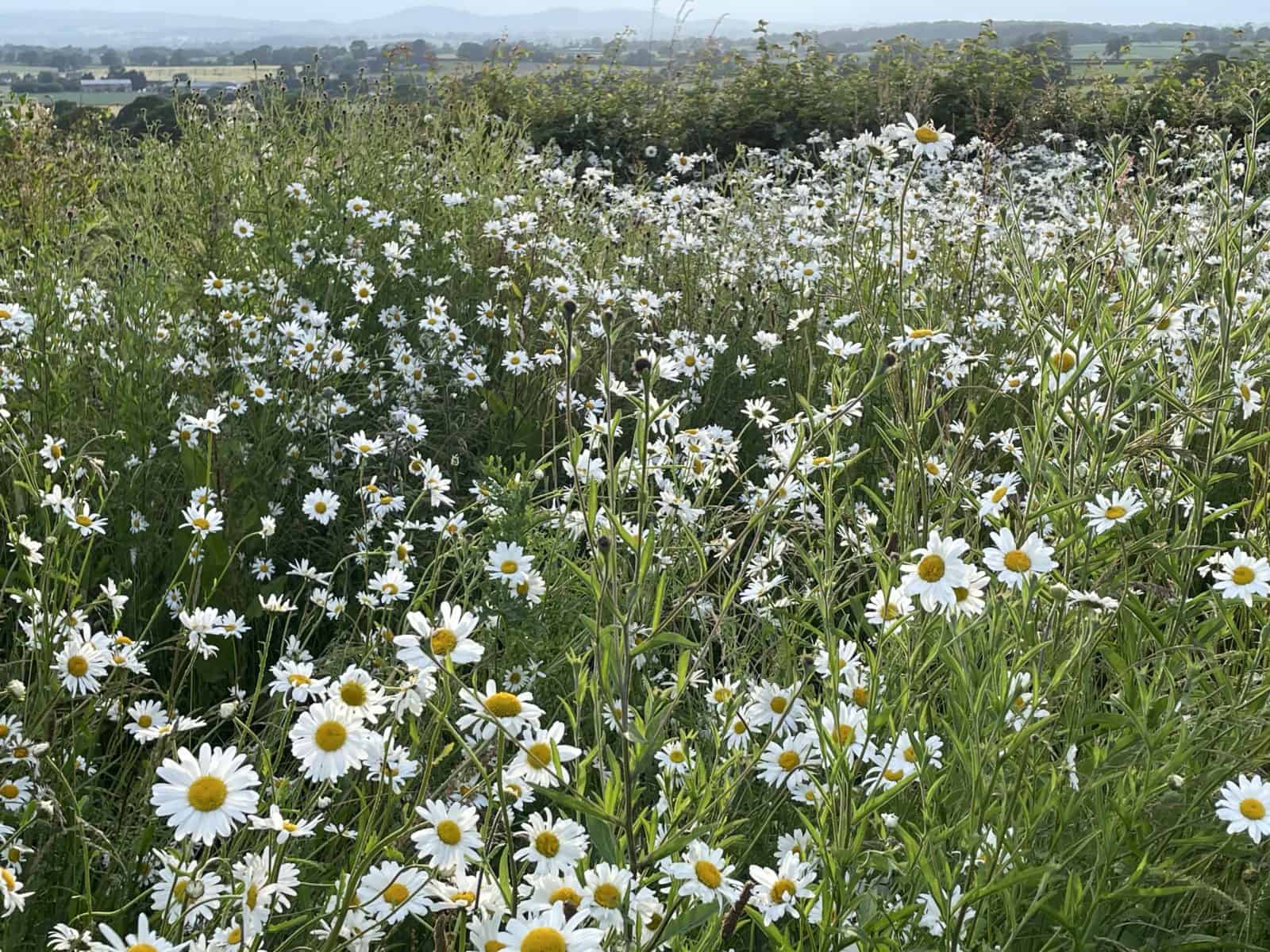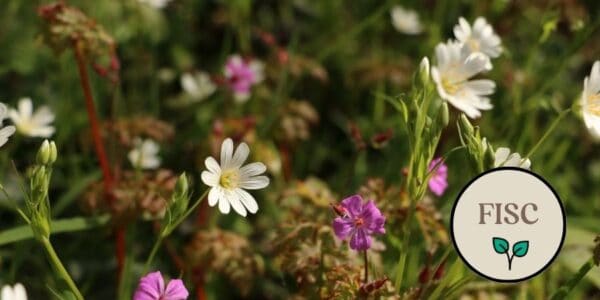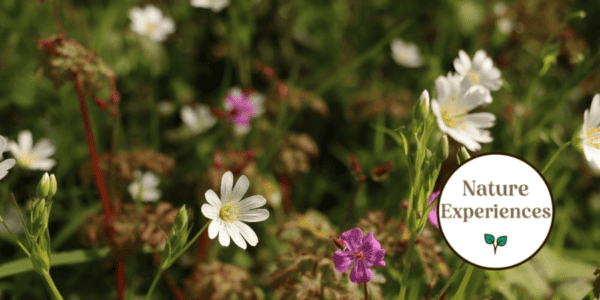This course is now fully booked.
Sign up for our newsletter to hear about the next run of this course
Find similar courses here
Llynclys Common nature reserve is one of the richest botanical sites in Shropshire. The reserve, managed by Shropshire Wildlife Trust comprises a series of former limestone quarries and a large common.
The range of habitats, both limestone and mesotrophic grassland, cliff face and scrub display a terrific array of species, but it is the woodland at this time of year which brings the naturalists.
This beginner course is a chance for you to look at an extensive limestone nature reserve in spring when the woodland species are at their best. The course gives the opportunity to see uncommon plants that are specific to limestone and will introduce ferns and enable you to identify different species in the field. We will begin with a short presentation on the reserve, its history, current management. Most of the day will be spent on this nature reserve in the Oswestry Hills, walking through woodland, scrub and grassland looking at predominantly the special calcicoles growing there.
PLEASE NOTE the course fee is for tuition only. There is no accommodation provided with this course. If you would like to book accommodation, lunch and an evening meal at FSC Preston Montford, please email [email protected]
*Bookings will close if course capacity is reached
If you’re ready to start identifying a range of botanical species, then this is the course for you!
Who Should Attend?
Nature enthusiasts, Students, Rangers, Early career consultants and ecologists.
Knowledge Level
Beginner. Level descriptors can be found on the following webpage: Framework and Course Level Descriptors
Prior Knowledge
It would be an advantage for learners to have some prior knowledge of plant species identification and the differences between different plant groups.
What will be covered during this course?
-
- The ecology of limestone habitats
- Woodland ecology, threats and management
- Differences between grasses, rushes, sedges and other flowering plants
- Identification of woodland species in the field
By the end of the course, you will be able to:
-
- Explain the ecology of limestone habitats
- Understand basic ecological structure and processes, management practices and threats to semi-natural woodlands
- Distinguish between grasses, rushes, sedges and other flowering plants
- Identify the ‘pinnate’ structure of ferns and how to apply this in identifying different ferns
- Identify a large number of woodland species in the field
- Share this knowledge with friends, family, and fellow volunteers
The course gives you the opportunity to immerse yourself in a new subject and acquire novel skills. Our fantastic tutor will combine the use of classroom-led learning and outside learning opportunities to give individuals the skills and confidence to learn more about wildflowers and ferns
-
- See the ‘Example Timetable’ and ‘What’s Included’ sections below for more information about this course
- Upon booking, you will need to provide individual details of all attendees
- Please email [email protected] if you have any questions
Group Bookings Made Easy
If you have a group of 10 or more individuals wanting to complete one of our courses, our team are available to discuss your options – from discounts to private team courses.
-
- Discounted rates
- Privately run courses for your group
- Bespoke courses developed specifically for your needs
Email [email protected] to discuss your options!
Tutor: Fiona Gomersall
Fiona Gomersall is a trained biology teacher and skilled field botanist. She is Conservation Officer at Shropshire Wildlife Trust and is an active member of the Shropshire Botanical Society. Fiona’s monitoring and botanical survey work takes her all over the county to the 40 nature reserves and several hundred local wildlife sites.Covid Measures
In order to keep our customers and staff safe, we ask that anyone attending our centres:
- Wears a face covering when in shared indoor space (unless exempt).
- Maintains social distancing.
- Cleans their hands regularly.
- Takes a Covid-19 test before they arrive.
Book with Confidence
We understand the difficulties of making plans in the current situation when guidelines continue to change, and insurance conditions are being tightened. In response, we will continue to offer additional flexibility. Find out more here
Example Timetable
Example Timetable
This timetable is subject to change but should give a clear outline of what to expect
- Please arrive in time for the course to start promptly at 10:00 am
- The course will end at 5:00 pm.
| 10:00am | Tutor introduction and short presentation |
| 11:00am | Break and prepare for field trip– refreshments not provided |
| 11:15am | Field trip to Llynclys common nature reserve – introduction to the species (grasses, rushes, sedges and other flowering plants) |
| 1:00pm | Lunch – not provided |
| 1:30pm | Continued field time – introduction to fern architecture and species identification. |
| 4:00pm | Return to classroom, summary and final questions |
| 5:00pm | End of course |
Please note - accommodation, refreshments and an evening meal are not included
A high level of fitness is not required but we will be walking about 2 miles and the paths can be rough and steep in places. A good level of mobility will be necessary.
What's Included
The course has been carefully created by expert tutors and educators to help you build your knowledge and apply it within the field surrounded by like-minded individuals.
The course includes:
- Classroom learning covering the theory of the species
- Field excursions to apply new knowledge
- Expert tuition for which the FSC is renowned
You can rest assured that the absolute best content from an expert in environmental education will be provided. In choosing an FSC course, you will be joining thousands of people who learn with us each year.
Before You Attend
What to Bring:
- Notebook and pencil
- Lunch and refreshments
- Sensible footwear and clothing for being outdoors
- Small bag to carry personal items
If you have them:
- Hand lens
- Your own reference book(s) - If you have access to the revised edition of ‘The Wildflower Key’, Rose and O’Reilly or ‘Collins Wildflower Guide 2nd edition’ and the ‘Field Flora of the British Isles’, Clive Stace
There will be a member of staff with first aid training and access to a first aid kit on site. If you have special medical or access requirements, please let us know as soon as possible so we can plan the course.
Sorry this course has ended



